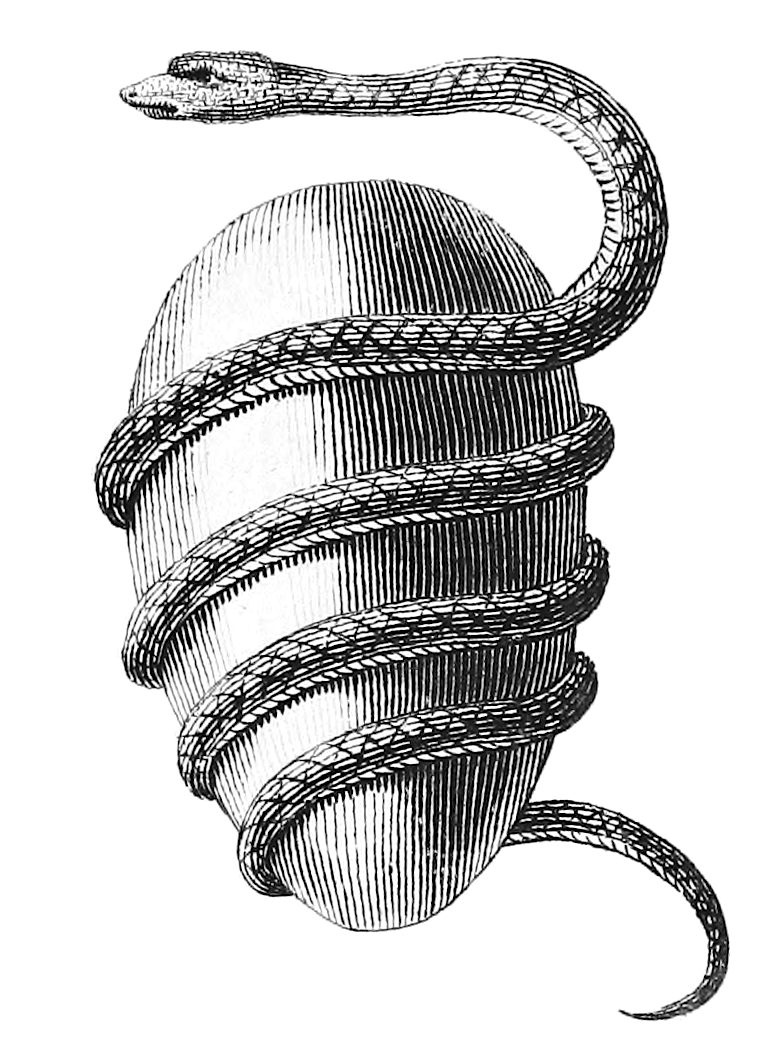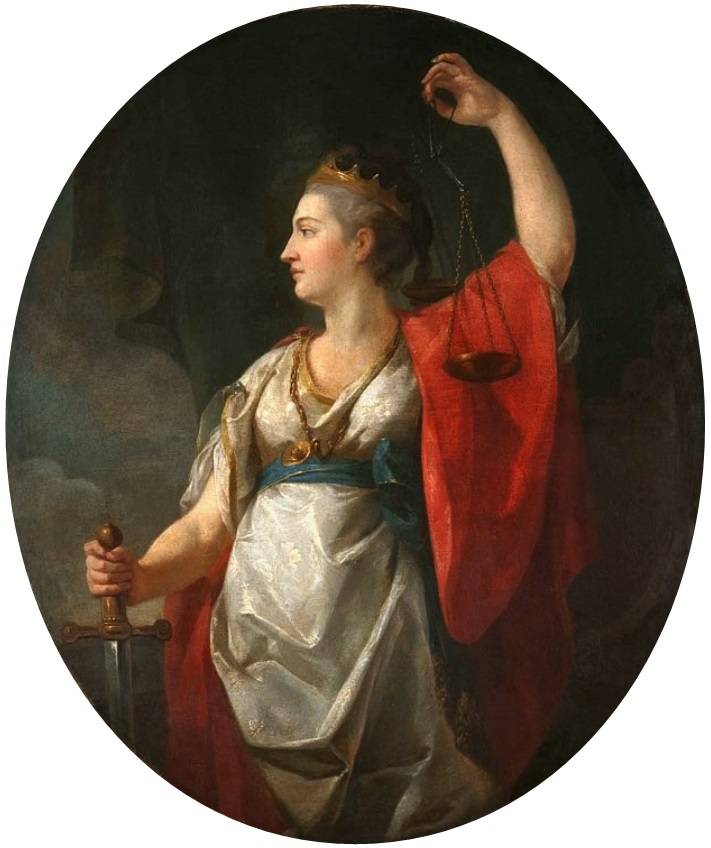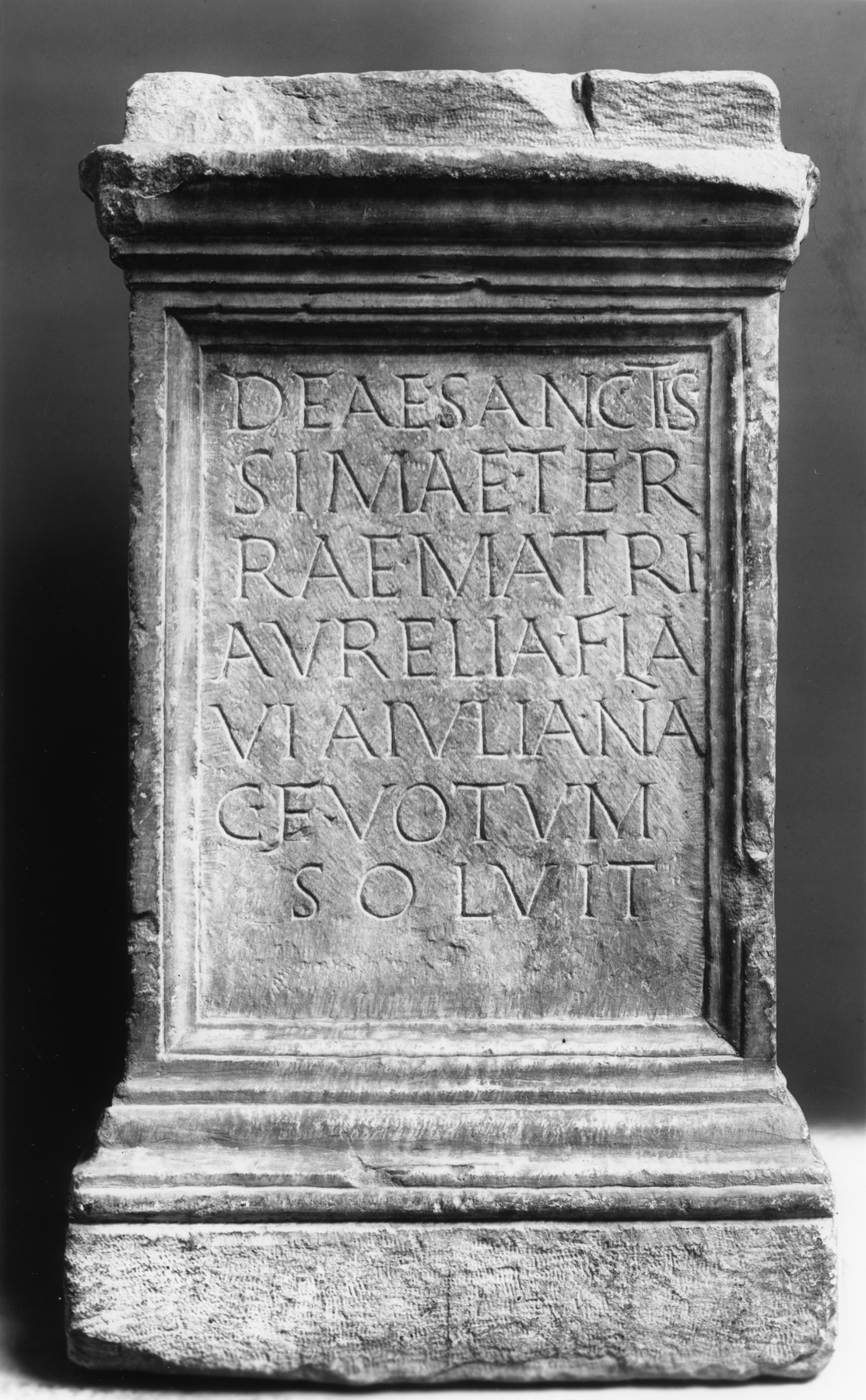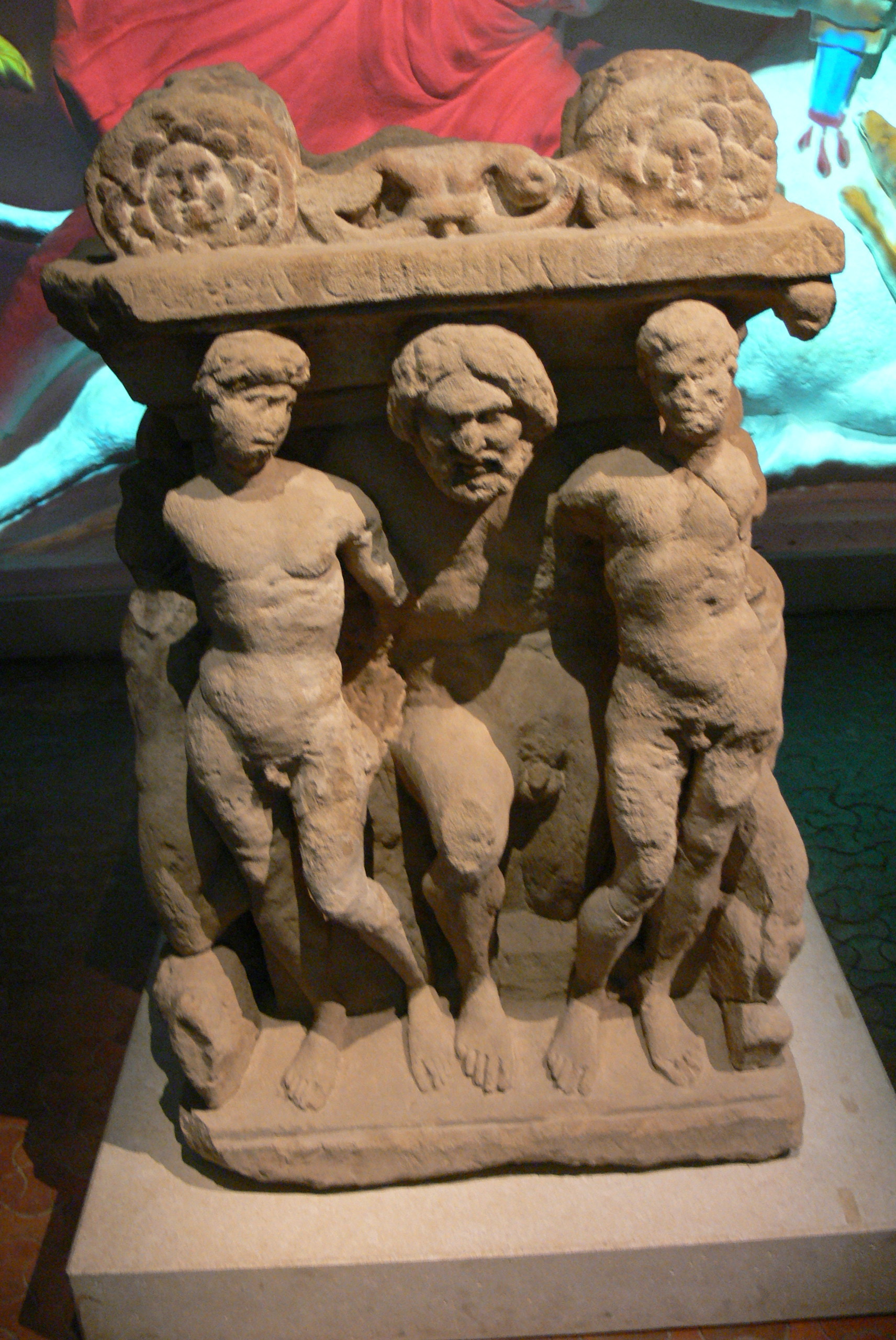|
Aether (mythology)
In Greek mythology, Aether, Æther, Aither, or Ether (; (Brightness) ) is the personification of the bright upper sky. According to Hesiod, he was the son of Erebus (Darkness) and Nyx (Night), and the brother of Hemera (Day). In Orphic cosmogony Aether was the offspring of Chronos (Time), and the brother of Chaos and Erebus. Genealogy According to Hesiod's ''Theogony'', which contained the "standard" Greek genealogy of the gods, Aether was the offspring of Erebus and Nyx, and the brother of Hemera. However, other early sources give other genealogies. According to one, the union of Erebus and Nyx resulted in Aether, Eros, and Metis (rather than Aether and Hemera), while according to another, Aether and Nyx were the parents of Eros (in Hesiod, the fourth god to come into existence after Chaos, Gaia (Earth), and Tartarus). Others tell us that Uranus (Sky) (in Hesiod, the son of Gaia) was Aether's son, and that "everything came from" Aether. In Orphic cosmogony Aether was th ... [...More Info...] [...Related Items...] OR: [Wikipedia] [Google] [Baidu] |
Greek Primordial Deities
In Greek mythology, the primordial deities are the first generation of Deity, gods and goddesses. These deities represented the fundamental forces and physical foundations of the world and were generally not actively worshipped, as they, for the most part, were not given human characteristics; they were instead personifications of places or Abstraction, abstract concepts. Hesiod, in his ''Theogony'', considers the first beings (after Chaos (cosmogony)#Greco-Roman tradition, Chaos) to be Erebus, Gaia, Tartarus, Eros and Nyx. Gaia and Uranus (mythology), Uranus, whose severed genitals created the goddess Aphrodite from sea foam, in turn gave birth to the Titan (mythology), Titans, and the Cyclopes. The Titans Cronus and Rhea (mythology), Rhea then gave birth to the generation of the Twelve Olympians, Olympians: Zeus, Poseidon, Hades, Hestia, Hera and Demeter. They Titanomachy, overthrow the Titans, with the Zeus#Ascension to power, reign of Zeus marking the end of the period of warf ... [...More Info...] [...Related Items...] OR: [Wikipedia] [Google] [Baidu] |
Callimachus
Callimachus (; ; ) was an ancient Greek poet, scholar, and librarian who was active in Alexandria during the 3rd century BC. A representative of Ancient Greek literature of the Hellenistic period, he wrote over 800 literary works, most of which do not survive, in a wide variety of genres. He espoused an aesthetic philosophy, known as Callimacheanism, which exerted a strong influence on the poets of the Roman Empire and, through them, on all subsequent Western canon, Western literature. Born into a prominent family in the Greek city of Cyrene, Libya, Cyrene in modern-day Libya, he was educated in Alexandria, the capital of the Ptolemaic dynasty, Ptolemaic kings of Egypt. After working as a schoolteacher in the city, he came under the patronage of King Ptolemy II Philadelphus and was employed at the Library of Alexandria where he compiled the ''Pinakes'', a comprehensive catalogue of all Greek literature. He is believed to have lived into the reign of Ptolemy III Euergetes. Altho ... [...More Info...] [...Related Items...] OR: [Wikipedia] [Google] [Baidu] |
Pontus (mythology)
__NOTOC__ In Greek mythology, Pontus (; ) was an ancient, pre-Olympian sea-god, one of the Greek primordial deities. Pontus was Gaia's son and has no father; according to the Greek poet Hesiod, he was born without coupling, though according to Hyginus, Pontus is the son of Aether and Gaia. Hyginus, ''Fabulae'Preface/ref> Mythology For Hesiod, Pontus seems little more than a personification of the sea, ''ho póntos'' (), by which Hellenes signified the Mediterranean Sea. After the castration of his brother, Uranus, Pontus, with his mother Gaia, fathered Nereus (the Old Man of the Sea), Thaumas (the awe-striking "wonder" of the Sea, embodiment of the sea's dangerous aspects), Phorcys and his sister-consort Ceto, and the "Strong Goddess" Eurybia.Hesiod, ''Theogony'233–239 Gantz, p. 16; Grimal, s.v. Pontus. For a genealogical table of the descendants of Gaia and Pontus, see Gantz, p. 805. With the sea goddess Thalassa (whose own name simply means "sea" but is derived from a ... [...More Info...] [...Related Items...] OR: [Wikipedia] [Google] [Baidu] |
Themis
In Greek mythology and religion, Themis (; ) is the goddess and personification of justice, divine order, law, and custom. She is one of the twelve Titan children of Gaia and Uranus, and the second wife of Zeus. She is associated with oracles and prophecies, including the Oracle of Delphi. Name ''Themis'' means "divine law" rather than human ordinance, literally "that which is put in place", from the Greek verb ''títhēmi'' ( τίθημι), meaning "to put." To the ancient Greeks she was originally the organizer of the "communal affairs of humans, particularly assemblies." Moses Finley remarked of ''themis'', as the word was used by Homer in the 8th century BCE, to evoke the social order of the 10th- and 9th-century Greek Dark Ages: Finley adds, "There was ''themis''—custom, tradition, folk-ways, ''mores'', whatever we may call it, the enormous power of 'it is (or is not) done'." In the ''Hymn to Apollo'', Themis is referred to as " Ichnaea", meaning "Tracker". Descr ... [...More Info...] [...Related Items...] OR: [Wikipedia] [Google] [Baidu] |
Fabulae
The ''Fabulae'' is a Latin handbook of mythology, attributed to an author named Hyginus, who is generally believed to have been separate from Gaius Julius Hyginus. The work consists of some three hundred very brief and plainly, even crudely, told myths (such as Agnodice) and celestial genealogies. Date, authorship, and composition In the earliest published edition of the ''Fabulae'', produced in 1535 by Jacob Micyllus, the work is attributed to "Gaius Julius Hyginus, freedman of Augustus", an ascription which may have been present in the manuscript itself, or may have added by Micyllus himself. There were numerous works which were attributed in antiquity to Gaius Julius Hyginus, and, though the work may not have been composed after his lifetime (1st century BC/AD), modern scholarship, for the most part, rejects the idea that this Hyginus was the author of the work. According to R. Scott Smith, it is reasonable to suppose that the Hyginus who authored the work lived during the l ... [...More Info...] [...Related Items...] OR: [Wikipedia] [Google] [Baidu] |
Terra (mythology)
In Religion in ancient Rome, ancient Roman religion and Roman mythology, mythology, Tellus, Terra or Tierra ("Mother Earth") is the personification of the Earth. Although Tellus and Terra are hardly distinguishable during the Roman Empire, Imperial era, ''Tellus'' was the name of the original earth goddess in the religious practices of the Roman Republic, Republic or earlier. The scholar Varro (1st century BC) lists Tellus as one of the ''di selecti'', the twenty principal gods of Rome, and one of the twelve agricultural deities. She is regularly associated with Ceres (mythology), Ceres in rituals pertaining to the earth and agricultural fertility. The attributes of Tellus were the cornucopia, bunches of flowers, or fruit. She was typically depicted reclining, or rising, waist high from a hole in the ground. Her male complement was a sky god such as Caelus (Uranus (mythology), Uranus) or a form of Jupiter (mythology), Jupiter. Her interpretatio graeca, Greek counterpart ... [...More Info...] [...Related Items...] OR: [Wikipedia] [Google] [Baidu] |
Hyginus (Fabulae)
The ''Fabulae'' is a Latin handbook of mythology, attributed to an author named Hyginus, who is generally believed to have been separate from Gaius Julius Hyginus. The work consists of some three hundred very brief and plainly, even crudely, told myths (such as Agnodice) and celestial genealogies. Date, authorship, and composition In the earliest published edition of the ''Fabulae'', produced in 1535 by Jacob Micyllus, the work is attributed to "Gaius Julius Hyginus, freedman of Augustus", an ascription which may have been present in the manuscript itself, or may have added by Micyllus himself. There were numerous works which were attributed in antiquity to Gaius Julius Hyginus, and, though the work may not have been composed after his lifetime (1st century BC/AD), modern scholarship, for the most part, rejects the idea that this Hyginus was the author of the work. According to R. Scott Smith, it is reasonable to suppose that the Hyginus who authored the work lived during the l ... [...More Info...] [...Related Items...] OR: [Wikipedia] [Google] [Baidu] |
De Natura Deorum
''De Natura Deorum'' (''On the Nature of the Gods'') is a philosophical dialogue by Roman Academic Skeptic philosopher Cicero written in 45 BC. It is laid out in three books that discuss the theological views of the Hellenistic philosophies of Epicureanism, Stoicism, and Academic Skepticism. Writing ''De Natura Deorum'' belongs to the group of philosophical works which Cicero wrote in the two years preceding his death in 43 BC. He states near the beginning of ''De Natura Deorum'' that he wrote them both as a relief from the political inactivity to which he was reduced by the supremacy of Julius Caesar, and as a distraction from the grief caused by the death of his daughter Tullia. The dialogue is supposed to take place in Rome at the house of Gaius Aurelius Cotta. In the dialogue he appears as pontiff, but not as consul. He was made pontiff soon after 82 BC, and consul in 75 BC, and as Cicero, who is present at the dialogue as a listener, did not return from Athens till 77 B ... [...More Info...] [...Related Items...] OR: [Wikipedia] [Google] [Baidu] |
Caelus
Caelus or Coelus (; ) was a primordial List of Roman deities, god of the sky in Roman mythology and Religion in ancient Rome, theology, Roman art, iconography, and Latin literature, literature (compare 'sky', 'heaven', whence English ''celestial''). The deity's name usually appears in grammatical gender, masculine grammatical form when he is conceived of as a male generative force. Identity The name of Caelus indicates that he was the interpretatio graeca, Roman counterpart of the Greek mythology, Greek god Uranus (mythology), Uranus (Οὐρανός, ''Ouranos''), who was of major importance in the theogony, theogonies of the Greeks, and the Jewish god Yahweh. Varro couples him with Terra (mythology), Terra (Earth) as List of Roman deities#Mater and Pater, ''pater et mater'' (father and mother), and says that they are "great deities" (''dei magni'') in the theology of the mystery religions, mysteries at Samothrace. Although Caelus is not known to have had a cult at Rome, not al ... [...More Info...] [...Related Items...] OR: [Wikipedia] [Google] [Baidu] |
Dies (deity)
In Roman mythology, Dies (Latin ''diēs'' "day") was the personification of day. She was the daughter of Chaos and Caligo (Mist), and the counterpart of the Greek goddess Hemera. Family According to the Roman mythographer Hyginus, Chaos and Caligo were the parents of Nox (Night), Dies, Erebus (Darkness), and Aether. Cicero says that Aether and Dies were the parents of Caelus (Sky). Hyginus says that, in addition to Caelus, Aether and Dies were also the parents of Terra (Earth), and Mare (Sea). Cicero also says that Dies and Caelus were the parents of Mercury, the Roman counterpart of Hermes.Cicero, '' De Natura Deorum'3.56 Name The Latin noun ''diēs'' is based on the Proto-Italic accusative singular ''*dijēm'', itself stemming from the Proto-Indo-European root ''*dyeu-'', denoting the "diurnal sky" or the "brightness of the day" (in contrast to the darkness of the night). The corresponding Proto-Indo-European day god is ''* Dyeus''. See also * ''Dies lustri ... [...More Info...] [...Related Items...] OR: [Wikipedia] [Google] [Baidu] |
Cicero
Marcus Tullius Cicero ( ; ; 3 January 106 BC – 7 December 43 BC) was a Roman statesman, lawyer, scholar, philosopher, orator, writer and Academic skeptic, who tried to uphold optimate principles during the political crises that led to the establishment of the Roman Empire. His extensive writings include treatises on rhetoric, philosophy and politics. He is considered one of Rome's greatest orators and prose stylists and the innovator of what became known as "Ciceronian rhetoric". Cicero was educated in Rome and in Greece. He came from a wealthy municipal family of the Roman equestrian order, and served as consul in 63 BC. He greatly influenced both ancient and modern reception of the Latin language. A substantial part of his work has survived, and he was admired by both ancient and modern authors alike. Cicero adapted the arguments of the chief schools of Hellenistic philosophy in Latin and coined a large portion of Latin philosophical vocabulary via ... [...More Info...] [...Related Items...] OR: [Wikipedia] [Google] [Baidu] |
Orphic Argonautica
__NOTOC__ The ''Orphic Argonautica'' or ''Argonautica Orphica'' () is a Greek epic poem dating from the 4th century CE.Meisnerp. 4 West, p. 37 states that "it can hardly be earlier and may well be later than the fourth century AD". It is narrated in the first person in the name of Orpheus and tells the story of Jason and the Argonauts. It is not known who the real author is. The poem is found in manuscripts either on its own or together with the ''Orphic Hymns'' and other hymns such as the ''Homeric Hymns'' and those of Proclus and Callimachus. The poem was lost, but in the fifteenth century it was found and copied in a manuscript (Codex Matritensis gr. 4562) by the Neoplatonic Greek scholar Constantine Lascaris, who is considered a Pythagorean Orpheus. Another related work is the '' Lithica'' (describing the properties and symbolism of different stones). The narrative is basically similar to that in other versions of the story, such as the ''Argonautica'' of Apollonius Rhodius, on ... [...More Info...] [...Related Items...] OR: [Wikipedia] [Google] [Baidu] |





